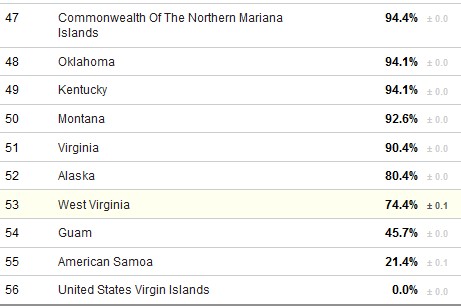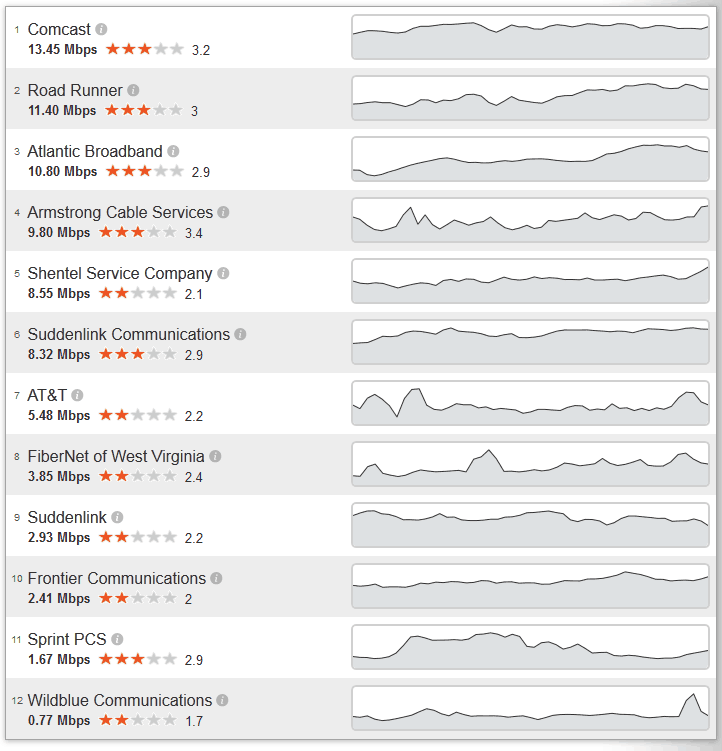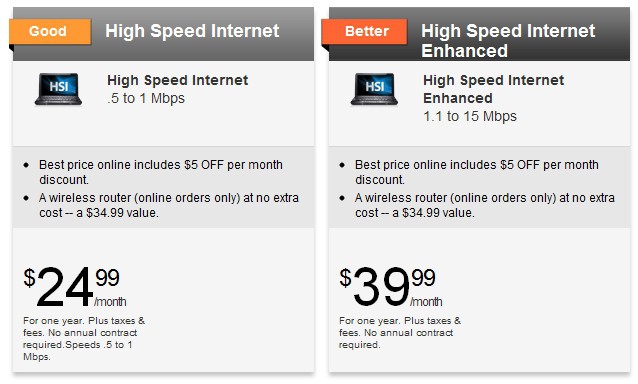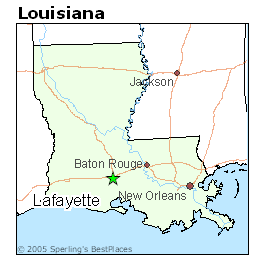Frontier Communications CEO Maggie Wilderotter wrote this week the company’s network improvements and expanded broadband has moved West Virginia from the bottom five states in the country to the top five.
In an Op-Ed editorial published in the Charleston Gazette Tuesday, Wilderotter likened Frontier’s broadband improvement to the 1960s moon program. Customers in West Virginia living with Frontier broadband can relate — to the 1960s anyway.
Where did Wilderotter get her information? Perhaps from Frontier’s own Dan Waldo, who made the same claim last summer in an interview with MetroNews Talkline. At the time he said it, West Virginia was ranked 47th in the country for broadband access. It now ranks even lower today — 53rd by the federal government’s national broadband map (the federal government also ranks U.S. territories and possessions.) In fact, West Virginia is in dead last place among U.S. states. Only Guam, American Samoa, and the U.S. Virgin Islands are worse.

This chart ranks the percentage of customers within a state receiving a minimum of 3Mbps download speeds and upload rates of at least 768kbps. (Source: National Broadband Speed Map/National Telecommunications and Information Administration and the Federal Communications Commission )
 The Center for Public Integrity is slightly more generous. It ranked West Virginia 46th in broadband subscriptions.
The Center for Public Integrity is slightly more generous. It ranked West Virginia 46th in broadband subscriptions.
Even Ookla, which analyzes millions of speed tests, tanked West Virginia, noting the average download speed is among the lowest of all 50 states at just 8Mbps, and that number seems high because it includes the state’s largest cable operators — the providers that actually deliver substantial broadband speeds.
Frontier’s contribution to West Virginia’s broadband improvement effort is measurable and noteworthy, at least for rural residents who can’t get broadband service any other way. But many customers living with Frontier sure wish they could.
The company is expanding slow speed DSL service (1-3Mbps) to an increasing number of rural homes, but it does not come cheap. On a megabit by megabit basis, all of the state’s cable providers deliver better value — more speed for the buck, when examining the actual “out the door price” that includes taxes, modem rental fees, and surcharges. Frontier charges all of the above.
While Frontier delivers an average speed of 2.41Mbps in West Virginia, Comcast delivers more than 13Mbps. Among wired providers, Frontier remains in last place. Ookla shows some minor improvements in broadband speed, perhaps attributable to the network upgrades Wilderotter wrote about, but every other wired provider in the state performs better than Frontier’s DSL. Who did worse? Sprint’s 3G/4G wireless network and Wildblue, a satellite Internet Service Provider.

Average download speed performance of ISPs within West Virginia. (Source: Ookla; Graph Period: October 2009 - April 2012)
Wilderotter:
Broadband connectivity throughout all of America can be the thread that unites us all and helps pull our nation up again. Over the past two years in West Virginia, Frontier has worked with the state to bring broadband to thousands of residents and businesses. We have invested in a fiber backbone infrastructure that connects cities, libraries, schools, hospitals and government service facilities. The network improvements and the access to broadband have moved West Virginia from the bottom five states in the country to the top five. Economic development has picked up, and entrepreneurship is alive and well. Frontier is focused on taking this model to the other rural areas we serve throughout the United States.
Frontier’s efforts to expand broadband in a state its predecessor Verizon underserved for years is admirable and the company has indeed expanded service to areas that never had access before. But as broadband rankings illustrate, Frontier’s incremental efforts are being overshadowed by more dramatic service and technology improvements in other states — the primary reason West Virginia is actually ranking worse than ever. Frontier is not fooling anyone promoting its institutional fiber broadband networks ordinary West Virginians cannot access from their homes or businesses. Our own readers tell us the company has repeatedly missed deployment schedules, broken promises, reduced speeds, and suffers from a woefully oversold network that slows to an intolerable crawl during peak usage periods.
Getting West Virginia among the top-five broadband states will require:
- Major investments in fiber optics into neighborhoods and homes. All of the highest ranked states receive fiber to the home and/or fiber to the neighborhood service in larger cities, and faster DSL than what Frontier routinely sells West Virginians;
- An upgrade of the state’s broadband backbone to better manage increasing Internet usage during peak usage periods;
- Additional penetration of competing technologies into more rural areas. Cable and fiber broadband deliver the fastest speeds, but most rural areas are bypassed. Frontier will need to deploy faster and better service to dramatically improve the state’s broadband ranking.


 Subscribe
Subscribe







